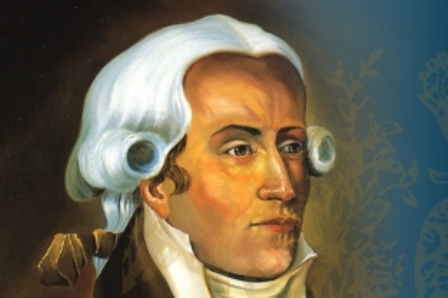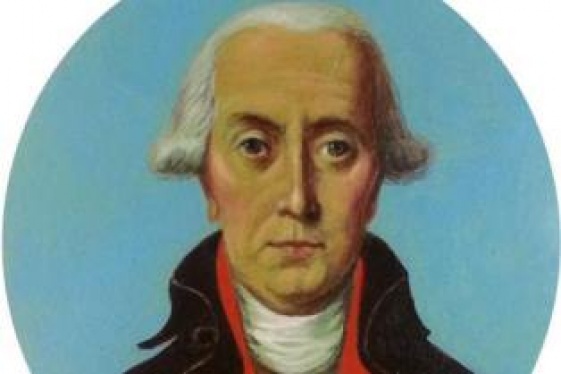

WTI Magazine #64 2015 July, 10
Author : Giovanni Verde Translation by:
The figure of Filippo Mazzei is unfortunately not very well known to the public, even the Italian one. His life, for long shrouded in mystery and rediscovered just in recent years, is a testimony about an Italian role in the process of the formation of the American nation. Filippo Mazzei was born in the Tuscan village of Poggio a Caiano on December 25, 1730, from a noble family of winemakers.
The family tradition let him acquire from an early age the ideals of individual freedom, civil rights and religious tolerance that will be the cornerstones of American Revolution. Filippo studies medicine in Prato and Florence and decides to move to Pisa and then in 1752 to Livorno, where he undertakes with some success a medical career.
After just two years, Mazzei moves to London, where the ideals of the Enlightenment are well accepted, better than in in Italy. He works in the British capital as a teacher of Italian language, before starting to enrich through the sale of food and wine. This way he also enters in the cultural gatherings of the British bourgeoisie, where Mazzei meets Benjamin Franklin and Thomas Adams, two of the biggest protagonists of the future Revolution overseas.
Invited by both his American friends, curious by his curiosity for the new kind of Government and also interested by the availability of land and therefore by the prospect of implanting Mediterranean crops in the new world, in 1773 Mazzei moves to Virginia, bringing with him a group of Tuscan farmers.
The Tuscan doctor engages a personal relationships with Thomas Jefferson, started for commercial reasons but soon turned in a political relation. Filippo Mazzei is author of vibrant invectives against the oppressive British rule in America, speeches where he praises freedom and equality. Some of these will be translated into English by Jefferson himself, who will be influenced by these ideals, much to find later some phrases by Mazzei transposed in the Declaration of Independence of the United States of America.
One of his papers, "Instructions of the Freeholders of Albemarle County to Their Delegates Convention", written as instructions for the delegates of the Albemarle County Convention auto-summoned after the forced dissolution of the Assembly of Virginia imposed by the British governor, will be used by Jefferson as a draft for the first attempt in writing the Constitution of the State of Virginia. Once naturalized as a citizen of Virginia, Mazzei is one of the first volunteers in the American War of Independence; in 1778 he is sent to Europe by Jefferson and Madison to seek loans, buy weapons and obtain political and military information useful to the emerging nation.
He returns to Virginia in 1783, just to bitterly observe the fact of not being appointed as a Consul. He then decides to leave, in 1785, while maintaining contact by letter with the fathers of the United States, Jefferson in the first place.
In Paris in 1788 he publishes a work in four volumes: "Recherches historiques et politiques sur les Etats-Unis de l'Amérique Septentrionale" (Historical and political research on the United States of North America). It is the first history of the American Revolution published in French, and still, is nowadays a very valuable source of information about the American Revolution.
Filippo Mazzei lives other 17 years in Europe, witnessing the first French Revolution, the rise and fall of Napoleon Bonaparte, but mostly always regretting his life in Virginia. He maintains his correspondence with his American friends and tries several times, unsuccessfully, to take one last trip to the United States. He dies in Pisa on March 19, 1816.
A liberal and a pioneer of the values of the West, he is credited with the famous phrase: "All men are by nature equally free and independent". He was a person of extraordinary human and political force, unjustly forgotten by the large public opinion: Filippo Mazzei can be counted among the sources of inspiration of the American Revolution, a piece of Italy in the great history of the United States and of Western Europe.
You may be interested
-
Benjamin Wohlauer (American Consul General in...
The year 2019 sees the ongoing celebration of the 200th anniversary of diplomatic relation...
-
Bill Pascrell e Pat Tiberi (Co-Chairs of the...
Entrando nella sede del Congresso degli Stati Uniti a Washington DC si passa sotto la "rot...
-
Descendants of Jefferson neighbor reunite in...
By K. Burnell Evans About 240 years ago, Antonio Giannini and his wife and daught...
-
Filippo Mazzei: Italian of the Week
Filippo Mazzei was born in 1730 in Tuscany, Italy. He studied medicine in his home country...
-
From Chianti to Jefferson
It was, as now, a matter of taxes, wine and happiness. The Florentine Philip Mazzei embodi...
-
Gli italiani che hanno fatto grande l'America
By Michele Zurleni Un cognome italiano per New York. Bill De Blasio è il fav...
-
Great Italians of the Past: A Christmas Eve...
Did you know that Christmas isn’t just a day but it’s a frame of mind?! And it’s to celebr...
-
Great Italians of the Past: Adriano Olivetti
WTI Magazine #79 2016 May 13Author : Giovanni Verde Translation by: An extr...













